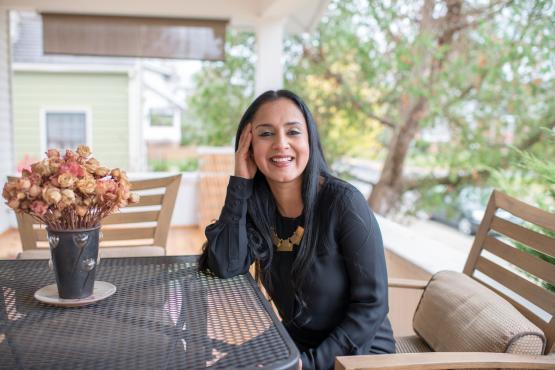
University names 2020 Presidential Research Scholars
Five faculty members have been named 2020 Ohio University Presidential Research Scholars for excellence in the fields of arts and humanities, and life and biomedical sciences.
The awards program recognizes mid-career faculty members who have garnered national and international prominence in research, scholarship and creative activity. Each award recipient receives $3,000 to be used at the scholar’s discretion as an honorarium or to support research or creative works.
“Ohio University is fortunate to have a large number of highly talented faculty,” said Joseph Shields, vice president for research and creative activity and dean of the Graduate College. “With the Presidential Research Scholar designation, we are pleased to recognize individuals who have shown particular distinction in their scholarly and creative efforts to advance knowledge and culture.”
The 2020 recipients are:
Arts and Humanities

Devika Chawla is a professor of communication studies in the Scripps College of Communication. Her research focuses on communicative, performative and narrative approaches to studying family, home, and social identity. Specifically, she examines how people transform themselves in the relationships that surround them and with the social, political, economic resources available to them. In 2007, she embarked on an oral history project about cross-generational familial experiences caused by the division of British India into independent India and Pakistan. After conducting three years of oral history fieldwork with three generations of refugees in North India, Chawla published a book-length monograph, Home, Uprooted: Oral Histories of India’s Partition (Fordham University Press), which won the 2015 Outstanding Book Award from the Ethnography Division and the International and Intercultural Division of the National Communication Association. She has also edited and co-authored books and more than 50 essays in peer-reviewed journals and anthologies.
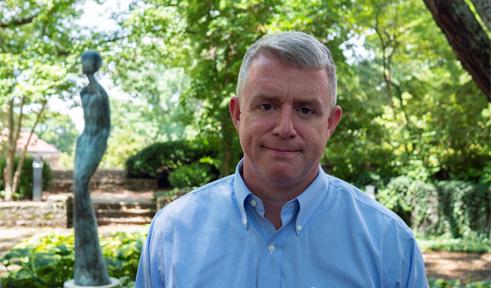
Robert G. Ingram is a professor of history in the College of Arts & Sciences and director of the George Washington Forum on American Ideas, Politics and Institutions. His research concerns religion and society in post-revolutionary Britain and its empire. In particular his scholarship grapples with the Reformation’s long-term effects on the English-speaking world. He has authored two books, four edited collections, and 19 book chapters and articles. He also has organized nine scholarly conferences, was elected a Fellow of the Royal Historical Society, and has held visiting fellowships at Durham University and Oxford Brookes University. His most recent book, Reformation Without End: Religion, Politics and the Past in Post-Revolutionary England, followed God in the Enlightenment and Between Sovereignty and Anarchy: The Politics of Violence in the American Revolutionary Era and Religion, Reform and Modernity in the Eighteenth Century: Thomas Secker and the Church of England.
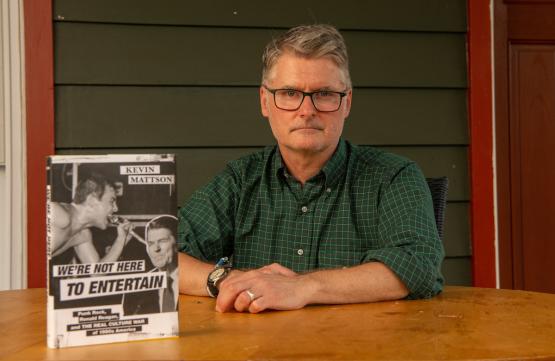
Kevin Mattson is the Connor Study professor of contemporary history in the College of Arts & Sciences. He is a cultural and intellectual historian of international repute who has authored and edited 14 well-regarded books and more than 200 articles in the field of American history. His research focuses on the intersection of ideas and politics in the 20th century, including participatory and deliberative democracy. In his most recent book, We’re Not Here to Entertain: Punk Rock, Ronald Reagan and the Real Culture War of 1980s America, Mattson utilized extensive archival research to document how the punk rock movement produced ideas and modes of expression that defied the basic assumptions of the time, with lasting cultural and political importance. His other books probe political rhetoric, and include Just Plain Dick: Richard Nixon’s Checkers Speech and the “Rocking, Socking” Election of 1952, and What the Heck Are You Up To, Mr. President?: Jimmy Carter, America’s Malaise and the Speech that Should Have Changed the Country.
Life and Biomedical Sciences
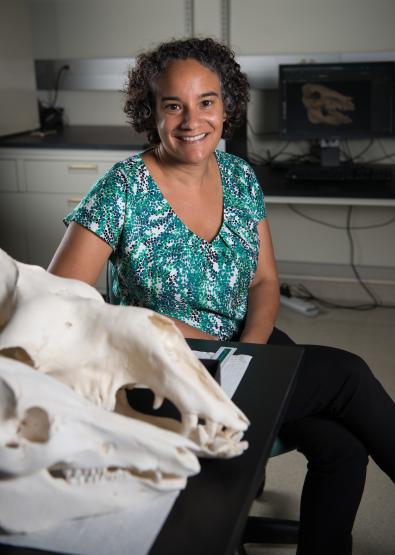
Susan Williams is a professor of anatomy and associate dean of faculty in the Heritage College of Osteopathic Medicine. Her lab conducts experiments both in the lab and in the field to examine the functional morphology, biomechanics and physiology of feeding in vertebrates, including chewing and swallowing. The primary goal of her research is to understand how the mammalian feeding system is altered or maintained over the course of evolution, during growth and development, and in injury or disease. By leveraging the evolutionary diversity in mammal feeding, one of her next projects will focus on patterns of functional and biomechanical integration between the head, neck and forelimbs in predatory mammalian carnivores that differ in killing mode and running ability. Williams has published dozens of articles in top research journals; contributed to Feeding in Vertebrates – Evolution, Morphology, Behavior Biomechanics, a book edited by leaders in the field; and has received both National Institutes of Health (NIH) and National Science Foundation (NSF) grants to support her work.
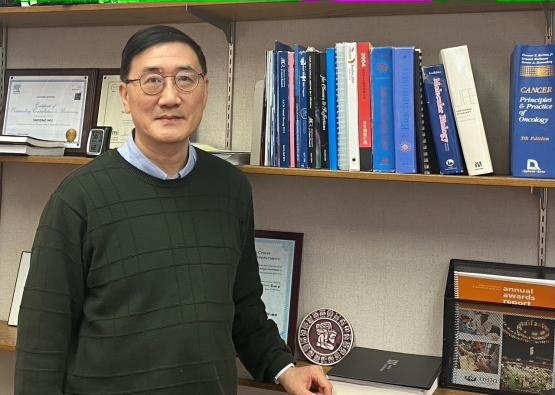
Shiyong Wu is a professor of chemistry and biochemistry in the College of Arts & Sciences, a member of the Molecular Cellular Biology program, and director of the Edison Biotechnology Institute. He is internationally known for research contributions on the mechanisms of non-melanoma skin cancer formation. His lab has received approximately $4.2 million in grant awards, including three from the NIH, and published more than 80 peer-reviewed research articles and book chapters. His work probes the fundamental molecular mechanisms of skin cancers caused by ultraviolet light exposure and helps identify potential therapeutics for prevention and treatment. His lab has made major contributions in the field of photochemistry, photobiology and photo-carcinogenesis. Wu has given seminars and invited talks around the world.
Nominees for the Presidential Research Scholars awards must be tenured, full-time faculty from one of Ohio University’s campuses. Scholars must have been employed by Ohio University for at least three years.
Applications from nominated individuals are reviewed by the Council for Research, Scholarship and Creative Activity (CRSCA) and previous Presidential Research Scholar recipients, with recommendations for selection given to the Vice President for Research and Creative Activity for final approval.
All faculty of Ohio University may submit nominations; faculty also may self-nominate. The next nomination deadline is April 22, 2021, and will accept applications from faculty in the areas of social and behavioral sciences and physical sciences and engineering.
See more information about the nomination and application process.
